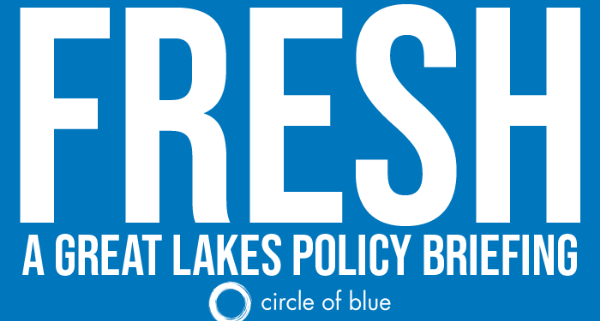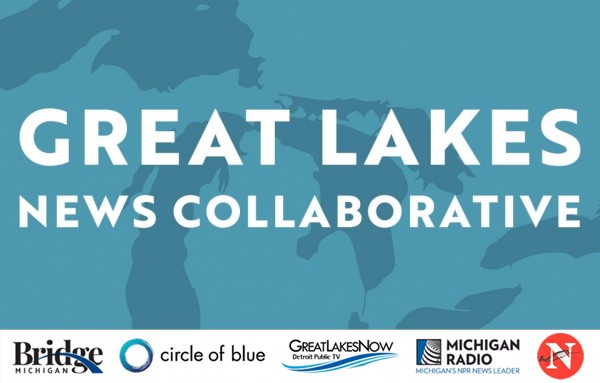Fresh, March 19, 2024: Northern Wisconsin Tribe and Lakes Association Sue Cranberry Producer For Violating Clean Water Act
March 19, 2024
Fresh is a biweekly newsletter from Circle of Blue that unpacks the biggest international, state, and local policy news stories facing the Great Lakes region today. Sign up for Fresh: A Great Lakes Policy Briefing, straight to your inbox, every other Tuesday.
— Christian Thorsberg, Interim Fresh Editor
This Week’s Watersheds
- After three years of legal delays, an experimental fish passage project will finally break ground in Traverse City, Michigan.
- The Lac Courte Oreilles Band of Lake Superior Chippewa and a local lakes association are suing a cranberry trust for illegally releasing phosphorus-polluted water in northern Wisconsin.
- In Minnesota, a new bill calls for Upper Red Lake to be returned in its entirety to the Red Lake Nation.
- Illinois legislators are introducing a series of bills to safeguard wetlands in the state, after federal protections were weakened last year.
As an unseasonably warm, dry winter nears its end, Michigan officials count record-low road salt use.
“Winter is becoming compressed into a few weeks in January…It’s reasonable to start planning for winters with less [road salt].” — Richard Rood, a professor emeritus of climate and space sciences and engineering at the University of Michigan.
One of Michigan’s mildest winters on record, partly due to a warming climate, has come with an unexpected benefit for the environment: the state’s use of road salt dipping 37 percent, Bridge Michigan reports.
With so little snow and ice, Department of Transportation trucks have ordered and deployed far less road salt, which is used to keep the state’s nearly 100,000 miles of highways and roads safe for driving. But road salt runoff has also long been a toxic concern in Midwestern states, polluting aquifers, rivers, streams, inland lakes, and soil. The state expects to end this winter having used 175,000 fewer tons of salt than usual, saving about $10 million.
In Context: Road Salt, A Stealthy Pollutant, Is Damaging Michigan Waters
Fresh from the Great Lakes News Collaborative
- Bill that would restore EGLE’s rulemaking power advances in state Senate — Michigan Public
- PFAS News Roundup: Indiana senators scrap bill that would change definition of polyfluoroalkyl substances in favor of manufacturers — Great Lakes Now
- Judge holds Flint in contempt for continued lead pipe replacement delays — Bridge Michigan
- Ontario weakens watershed protections (again) as natural resources minister gets new powers — The Narwhal
Bridge Michigan, Circle of Blue, Great Lakes Now at Detroit Public Television, Michigan Public and The Narwhal work together to report on the most pressing threats to the Great Lakes region’s water. This independent journalism is supported by the Charles Stewart Mott Foundation. Find all the work here.
Protecting Lac Courte Oreilles From Cranberry Bog Phosphorus Pollution
In northern Wisconsin, the Zawistowski Trust — which owns and operates two cranberry bogs — is being sued by the Lac Courte Oreilles Band of Lake Superior Chippewa and the Courte Oreilles Lakes Association for allegedly illegally polluting Musky Bay with phosphorus, Wisconsin Public Media reports. The lawsuit claims that the trust has neglected to obtain necessary permits and is degrading the lake with runoff, “which negatively impacts the Tribe and its members’ property, fishing, hunting, subsistence, and recreational interests.”
Phosphorus in excessive amounts is one the leading causes of algal blooms. But according to the Environmental Protection Agency, cranberry farms aren’t required to hold permits, and the family has never been cited for any infraction across decades of growing. Previous lawsuits against the Zawistowski family, for degrading Musky Bay, have also been unsuccessful.
In the News
FishPass: More than three years after it was announced, a $20 million fish passage project called FishPass is finally set to begin construction this spring in Traverse City, the Traverse City Ticker reports. The system, which includes a research facility and nearby parkland improvements, will replace the city’s deteriorating Union Street Dam. It will impede unwanted non-native species such as sea lamprey, while “desirable” fish including sturgeon will move unobstructed. FishPass had been delayed after its approval process was found not to comply with the city charter. But after the Michigan Court of Appeals overturned the ruling, and the Michigan Supreme Court declined to hear the case, the project is back on.
Upper Red Lake: Minnesota House Democrats have introduced a new bill that would facilitate a land transfer of parts of Upper Red Lake and surrounding forest to the Red Lake Tribe, Minnesota Public Radio reports. As the borders are currently drawn, the entirety of Lower Red Lake, and the western half of Upper Red Lake, exist within the Tribe’s reservation. If the legislation passes, the eastern half of the lake would also become “property” of the Tribe.
Looking Ahead
Illinois Wetlands: Illinois State Sen. Laura Ellman and State Rep. Anna Moeller have sponsored companion bills that would create a Wetlands and Small Streams Protection Act to safeguard such ecosystems in the state, WBEZ Chicago reports. The bills come as a response to the U.S. Supreme Court’s decision last year to narrow federal oversight of waterways, thus rolling back Clean Water Act protections for a majority of the nation’s wetlands. If the bills pass this spring, the Illinois Department of Natural Resources will require permits from developers who seek to build on any of the state’s approximately one million acres of wetlands — just 10 percent of what existed 200 years ago.
Upcoming Events
March 27 — Let’s Talk Lake Superior: Nutrients and Algae in Lake Superior (Webinar) — learn more.
April 10 — Let’s Talk Lake Huron: From Waves to Wetlands – Protecting Biodiversity in Lake Huron (Webinar) — learn more.
Other News
Lake Superior: National parks surrounding Lake Superior, one of the fastest warming lakes in the world, are working together to cut fossil fuel emissions, Interlochen Public Radio reports.
Oneida Drinking Water: The Canadian government is offering compensation of up to $8 billion to 142,000 individuals from 258 First Nations as communities have faced years-long water advisories and shortages, CBC reports.
Christian Thorsberg is an environmental writer from Chicago. He is passionate about climate and cultural phenomena that often appear slow or invisible, and he examines these themes in his journalism, poetry, and fiction.









Leave a Reply
Want to join the discussion?Feel free to contribute!